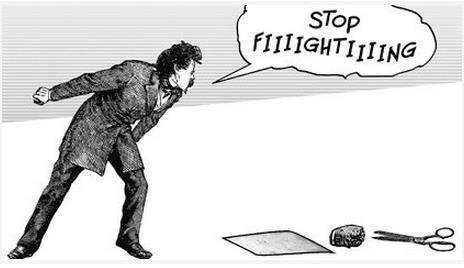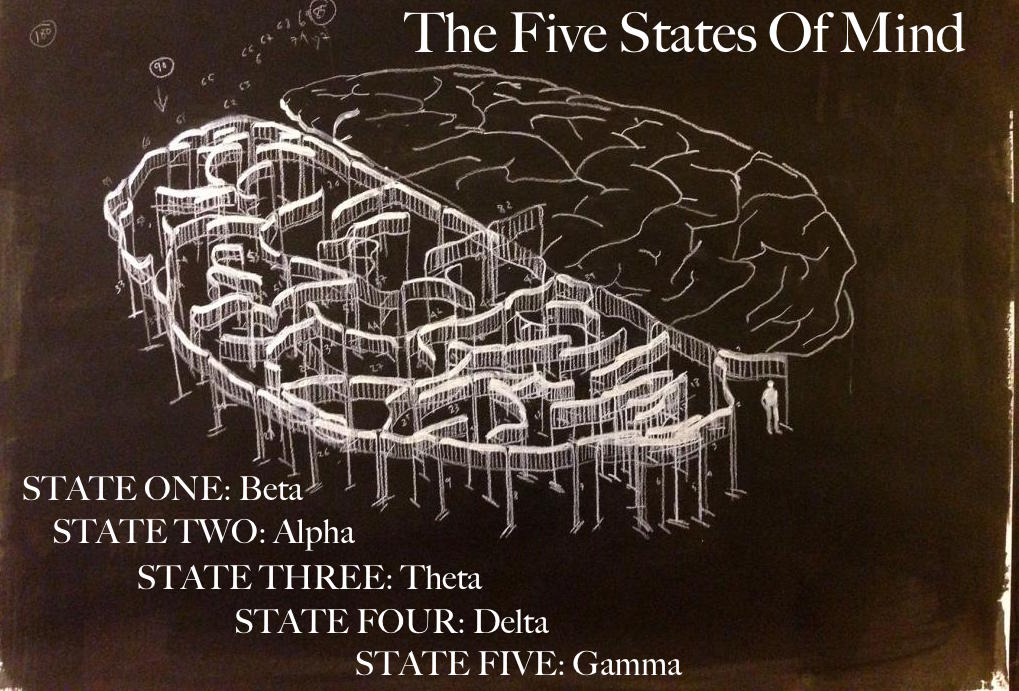Can you ever avoid conflict and fights from breaking out in your marriage?
Do you and your husband or wife have ground rules in place to minimize or eliminate the damage fighting can cause your relationship?
Why do fights happen and who is often to blame?
Once a fight has started, what can a couple do to turn a negative event into a positive one?
I plan on discussing all of these topics and more in the following guide about conflict in marriages.
You see, learning how to avoid fighting in your marriage is a big part of a fulfilling marriage, but what I also want you to walk away with after reading this article is what should you do when a fight breaks out.
Make no mistake, all couples will engage in some kind of argument during the course of their marriage. Sometimes the question you might need to ask is what is needed to help you and your souse get the marriage back on track. In the post below, I get into some advice for those couples looking to put an end to their conflict and jump start their marriage.
https://marriagerecovery.com/what-does-my-relationship-need/
Those who contend that fighting can be completely avoided are living in fantasy land.
I appreciate you visiting me here at My Marriage Helper to learn about how to successfully avoid fighting and conflict in your marriage.
So when this extensive Guide is completed, I hope you will check back to review often as it is probably one of the most comprehensive training modules on this topic.
Indeed, you will walk away with an awesome resource that my clients have raved about when I help them with the conflict they are experiencing in their relationships.
I call it the Conflict Resolution Skills List.
I will get into all of the skills and competencies you need to have a bit later in this Guide, but first let’s go looking for the monsters!
Our Inner Monster
All of us are subject to what I describe as the principle of the inner monster.
It is in our nature to engage in conflict at times.
I know, it sucks!
But it is what it is.
Where do we inherit this human condition?
Is it a survival mechanism? Is it a deeply rooted flaw we all have?
Is it a natural product of our need to release jumbled up emotions?
Does conflict serve a constructive purpose?
Well, I suppose we could probe deeper into the fields of anthropology, psychology, evolution, and all the rest of the sciences that teach us about the human condition.
I could spend hours examining each of these questions. But that is not what you are really here for. This guide is not intended to be a tutorial on the history of human psychology or the underpinnings of conflict in the human species.
Wouldn’t that be boring??
OK – OK!…. so maybe we will touch on some of these things. I do want you to know about how to avoid conflict. I would like to teach you about the kind of adversarial situations that can crop up in your relationship.
For example, what if your husband seems to be always angry with you. What can you do to turn that around. I explore some ideas on that topic in the post below:
https://marriagerecovery.com/my-ex-husband-is-angry-at-me-what-should-i-do/
Let’s just agree that throughout the course of human history, these exceptionally complex creatures that are “us” can and will engage in many forms of conflict ranging from flare-ups, skirmishes, fights, battles, and all out wars.
And yea…I am talking about our marriages!
Is a Fight Free Marriage Possible?
Yes, we can do something about it.
We can shape our emotions and our relationship such that the occurrences of fights are greatly reduced.
And we can learn to manage and tame the “monster” within us when fighting does break out. But what I can’t teach you is how to totally eliminate conflict in your married life.
So if you come across some other relationship expert that is trying to convince you that can achieve a fight free marriage or adopt a zero fighting policy, don’t believe it.
Don’t buy into their flawed thinking.
Rather, I would encourage you to master the principles that can help you with minimizing fights.
While we can’t stop conflict from occurring entirely, we sure as heck can learn how to prevent much of it. And once it has arrived at the doorstep of your marriage, you can learn to slam the door on its face.
Like any good survivalist trainer, I want to teach you about the things you can do once you are in a fight with your husband or wife. Because after all, survival is what we are really talking about.
The core of this discussion is helping you develop the competences to ensure your marriage will survive and prosper in an environment in which various forces, some which you may never fully understand, can lead to conflict and fights. So let’s get to work!
Fights and Conflict – Are They the Same?
It funny to me when I get this question from clients or visitors of my websites.
Don’t get me wrong. It is actually a very interesting question.
It actually makes me laugh, but not at the people asking the question, but rather the so called relationship experts that dispense advice.
People want to know if they can have a relationship that is free from fighting. No one really wants to fight with their spouse.
It it exhausting.
It is painful.
And it is almost always hurtful and destructive to some degree.
So it makes sense that couples will seek out help books or training courses that can presumably rid them of this most terrible behavior
It’s as if the couple is possessed, so if the demon can be cast out, all will be well in marriage land. So these books and workshops, I suppose, are designed to exercise the the “fighting devil”.
These authors conjure up the spirit of their infinite wisdom and call upon the monster in our marriages to be exercised.
I can hear them now……
“Let the devil in your marriage be gone! Rise up satan and leave this loving relationship. Be scattered to the wind”.
Ok, so maybe I am exaggerating just bit!
But you get the idea.
There are many thousands of loving couples desperately seeking help to end the fighting that tears at the fabric of their relationship.
So these folks are very motivated.
And when they walk by the bookstore or search the internet and discover books or workshops with titles like:
“Discover Marital Bliss: Be Rid of Fighting Forever”
or
“A 7 Step Method To Stop Fighting With Your Spouse”
or
“A Foolproof Plan to Eliminate the Conflict that Tears at Your Marriage”
or my personal favorite…
“A Proven 17 Module Marriage Workshop – Zero Fights”
So as these good hearted married couples come across such titles, they naturally are attracted to the prospect that they too could have a fight free marriage.
They become overwhelmed with the desire to shell out hundreds of dollars in the hope that their marriage can be saved, permanently.
What often happens it what I call the old bait and switch.
These books and workshops make very bold assertions, but upon closer examination after one peels back the layers of what is really being said, it is discovered we are dealing with word play.
You ask, “what is do you mean by word play”.
Well, this what I meant earlier when I pointed out that I often get questions about whether fighting and conflict are the same things.
So, are they? Of course they are!
A fight is a form of conflict.
A conflict, for all practical purposes, is a type of fight.
Remember, words are inventions of man.
They are in reality “mental constructs” and can be turned and twisted to mean a lot of different things for different people.
Unfortunately, given the slippery nature of words, they can be turned into weapons of deception.
So please be careful about what you read and what is promised.
If you come across a relationship expert or some kind of book or workshop that promises you that your relationship can be fight free.
Don’t believe it.
They will argue on one hand that they can teach you how to never fight with your spouse, but what they are really doing is splitting hairs in their use of semantics (i.e. words).
When you peel back the layers, what they are really saying is that your “dreadful fighting ways” can be cured….maybe….sort of…. but you will still have conflict at times.
Look, I understand.
None of us like fighting with our spouse.
But would you rather cling to a pipe dream or going forward, look at your relationship in a pragmatic and realistic way?
So why did I tell you all of this?
Because it is important that you come into this discussion understanding that if you and your spouse are fighting, you are not unlike millions of other couples.
What I want to do is first help you with understanding the causes and effects of marital discord.
Understanding the cause and effects of something is the first step in helping you deal with it better.
Then I want to show you how to best deal with conflict once you find yourself within its grip.
Be assured, once you soak up some of these learnings, you will come out the other side a much stronger and informed person.
The 5 States of Mind We all Experience
Do you ever feel you are losing your mind?
I hope so! I certainly lost my mind ages ago!
But in a good way…..a normal way.
Science has shown us to be a species whose mind is frequently shifting from various states. If you and your spouse were always of the same mind, then I suppose you would be like a drone.
And that would be terribly boring.
Thinking and doing the same thing is certainly a path to a boring existence.
Fortunately, we all experience different states of mind.
Depending on the state of mind we occupy at any given time, we may be open to welcoming new ideas and ways of looking at things.
Or, we may be very closed minded and disagreeable. Then there are occassions such that if both you and your spouse are occupying a certain similar state of mind, the fighting spirit can rise up and lo and behold, you guys are fussing at each other again.
So what are these states of mind?
How do they influence our ability to cooperate and find resolution versus becoming angry and disagreeable?
Well, the science of the mind tells us there are five of them. I took the liberty of creating a fun little infographic for you to illustrate the five states,
What I am going to do now is go down the five stages one by one so you can get a better idea of how this works.
Sound good?
Ok, lets hop to it!
STATE ONE: Beta
The first one is referred to as Beta (15 to 40 hz brain wave cycles per second).
This mind state is our most predominant way at experiencing the world around us. Our brain wave cycle is percolating at around 15 to 40 hz per seconds throughout the day.
So we are pretty alert. It is in this state that our logical and critical reasoning takes hold.
At higher brain wave cycles (e.g. 35 to 40 hz wave cycles per second), that part inside you which we will call your “self”….well, that part can become your nagging voice and stress or anxiousness can rule the day.
So do you see how we can sort of lose our minds.
In one moment we are logically thinking through a problem, then in the next moment our brain wave cycle can speed up and suddenly we are overcome with anxiousness.
The cause of this could be external in that something happened. It could be something we saw or heard or smelled that triggered a reaction.
Or the change in the brain wave cycle could have been triggered by the propensity of our mind to sometimes just switch gears.
It’s like when you suddenly or even slowly become aware you are in a bad mood. Your are not sure why or how you quite got there, but it’s like something deep at the subconscious level has taken control of your mental steering wheel.
I know, it’s all pretty weird if you think about it for a spell.
Yep, I am pretty sure we all are losing our minds now and again.
Are you starting to see how this can impact relationships? Y
es, maybe, or not sure?
Well, hang on, we will dive a bit deeper.
STATE TWO: Alpha
We also have another mind state referred to as Alpha (8 to 13 hz). This is my favorite place to be.
You might be thinking, “well, you are a guy, so of course you enjoy going alpha male”.
But it’s not what you are thinking.
We are talking about something different here.
You are probably in an alpha state of mind right now, with some Beta mixed in! Alpha is described as a restful and peaceful mind state.
You are fully wake, but quite relaxed.
You may be reading, fantasizing or daydreaming.
Maybe your are working in the garden or getting in a favorite yoga position.
This is a mind state where creativity reigns supreme and peacefulness remains at your side.
People are usually quite imaginative during this state and experience a heightened ability for visualization and learning.
Now I don’t know about you, but I rarely ever feel like fighting, fussing, or anything like that when I get lost in my alpha state.
It’s a nice place to be and this is where you and your your marriage partner can make some great inroads within your relationship.
This is where calm, collaborative dialogue takes place.
It is this state of mind that your marriage bonds can grow tighter as both of your are primed to accept and love many things about each other.
STATE THREE: Theta
Now as we drop down to lower brainwave activity, we find ourselves in what is described as the Theta state.
The brain waves are cycling at about 5 to 8 hz per second. You have now entered the world of deep relaxation.
It’s a very restful period and is comparable to meditative activities and possibly a very light sleep.
If conflict with your hubby or wife has created undue stress, then by golly take a trip to the world of Theta and you will be most obliged by my advice!
It is a powerful, personal and relationship building place to reside.
I should point out that sliding down the brain wave activity scale such that you arrive at this serene place is not an entirely easy thing to accomplish.
It takes practice and discipline. Those with experiences with Yoga or meditation can achieve this state of mind more readily.
If there ever existed a conflict or fight buster, then a Theta state of mind is pretty darn close. Not only is it useful as a conflict preventative measure, but even after a fight, it can be extremely therapeutic to visit your Theta self.
Like I said, we can all get lost in different states of mind.
Learning to recognize them and guide ourselves to more healthy and enriching emotional states is the perfect medicine for warding off those ugly and disagreeable feelings that sometimes overcome us.
Of course, it takes two to tango. You can have your act and mind state fully together, but your spouse may not be in the same place. He or she could be wanting to get it on.
Despite your reasonable and calm demeanor, your spouse may just default to that “not so nice place” and be dying to pick a fight.
I will be offering you some really helpful skills training and other techniques you both can employ to dampen that fighting spirit.
But let’s finish this discussion about our many mind states.
STATE FOUR: Delta
Delta is yet another state of consciousness.
It operates at the 1-4 hz brain wave cycles per second range.
This is where you enter into deep, dreamless sleep or an extremely deep, meditative trance.
There is an interesting theory out there about fighting and sleeping.
Some believe that the best cure for an unresolved fight is to just sleep on it.
That’s right, just go to bed…. so say some advocates.
I am neutral on this tactic as I really can’t point to any overwhelming evidence that supports the notion or argues against.
It seems that the idea revolves around the concept that instead of arguing into the night, it is better to just turn off the lights and get a great sleep.
There is indeed a restorative power to sleeping.
Also, by putting some “time” between when you last argued and when you decide to take up the discussion again….the idea is you will both be in a better place….more calm…perhaps with more perspective.
Then there is the other possible benefit that by going to bed, the two of you will transfer your unsettled feelings to a healthy sexual encounter, thereby diffusing much of the tension.
The old kiss and make-up strategy!
STATE Five: Gamma
Ok, so before we leave this discussion of “mind states”, let’s at least finish with the most recent discovery.
It is believed that there is a 5th state of mind and it is called “Gamma” (i.e. over 40 hz).
It was only recently discovered.
Very little is known about this mind state, except that it is thought to be associated with bursts of insights and periods of extremely high information processing.
If only we could all master this sublime state of mind!
So Where is Your Mind at Any Given Time?
I cannot emphasize enough how complicated people are in the ways they think about things.
Sometimes there appears to be no rhyme or reason to why we feel they way we do or behave a certain way.
Usually, our actions are a function of our mindset. A relatively happy couple that ends up in knock down, drag out fight, may have been victims of incompatible mindsets.
And there are a lot of mindsets we can adopt at any given time during the day.
The good news is that a mindset is not permanent.
A mindset changes frequently based a variety of factors, some which we control, others for which we have little or no control.
Thank goodness none of us can read our spouse’s minds. We would be confused, shocked, inspired, humored, freaked out, relieved, worried, and just about everything else.
Heck, it’s even difficult to know our own minds!
I think it’s important to note that unlike robots, that are specifically programmed to act a certain way, we have very complex and highly variable reactions to the environment around as well as the internal workings of our mind.
Conflicts emerge from these places in our minds as we process the world around us.
So let’s drill a little deeper into the Machinery of the Mind in search of root triggers and solutions for conflict.
Our different mindsets can result in all sorts of collisions, some of which we may not be able to anticipate. These mindsets include:
- Giving: This is where we feel compelled to offer, selflessly, something to another. In this mindset, you may freely offer your spouse a backrub without any expectation of getting something in return….except perhaps the loving pleasure you gain from being close to your husband or wife. When both spouses are “givers” then we are looking at magical moments. I truly believe giving is much more powerful than receiving because it is a strong component of building a connection and bond between the couple. If both you and your spouse were of the mindset to spend the majority of your waking hours in the “giving” frame of mind, then would have little need for this Guide. Indeed, I would be interviewing the two of you to learn how you’re able to spend so much of your time with such a benevolent spirit.
- Taking: Then we have the other side of the coin, “Taking”. A “taker” is one who just wants everything his or her way. These individuals are often controllers or selfish, requiring that everything revolves around them. A taker will usually take advantage of a “giver”, with little consideration of ever returning the favor. When we are in this frame of mind, we are acting upon primarily selfish or impulsive tendencies. I hate to admit it, but I am a relationship “taker”. But so are you and everyone else. Of course, our degree of “taking” varies from person to person and situation to situation. Imagine having a married couple whose primary mindset is to be “takers”. Do you think they will fight? You bet they they will! Cooperation is usually at the bottom of their preferred behavior.
- Analyzing: Again, we all live in the mindset of analyzing things. Some more than others. And with most things in life, too much of one mindset can stifle the relationship. A marriage partner that is overly anal about things, fussing over the smallest of details….well, that is not an optimal mindset, unless both spouses are highly analytical and enjoy the tedious dissection of facts. Please don’t think though that an “Analyzer” is a bad thing. It is not. We all need our analytic skills to make sense of things. You are using some of those now to decipher the meanings of the things I am talking about in this Guide. It’s important to understand that analyzing is one of many “mindsets” we can employ at any given time.
- Stressing: This is where the higher beta brainwave cycles can get us all wound up. Think of a time when you marital partner came home, already predisposed to be easily annoyed or quick to anger. It may have been an unusually stressful day in the workplace, so his or her mindset may be filled with tension. Fights often get started when one or both of the spouses are filled with anger, tension, anxiousness or,restlessness. The most fertile ground for an all out battle of the sexes is to put a stressed out husband together with a stressed out wife…behold, a battle royale is born.
- Withdrawing: Have you ever noticed that your wife, girlfriend, boyfriend, or husband….whatever the case may be…sometimes will just disappear on you. I mean they pull away and become emotionally detached. This mindset of withdrawal is far from a healthy place for a couple. Avoidance is almost always an unhealthy state, though there are situations where short term avoidance can be helpful. In general, if both husband and wife or withdrawing, retiring into themselves…look out…things are going down a very bad path. Even when one of the marital partners frequently withdraws, we are dealing with a dysfunction within the marriage. A relationship where both parties experience emotional withdrawal is a lot like separation under the same roof. It’s reflective of a couple ready to give up, throw in the towel. This is state that is sometimes followed by depression. I see this happening in couples or in an individual spouse that is bone weary of marital conflict and lack of resolution. When two people are frequently engaged in an adversarial relationship, they are in dire need for help.
- Creating: -This is an example of an alpha state and is among my favorites. This is a state of mind where you and your better half want to spend a lot of time. It works at both the personal level as you seek to become the best version of yourself. And it is also exceptionally effective in helping marriages become more fun and fulfilling. What we are talking about here is imaginative collaboration with your marriage partner. Marriage couples that make use of their creative juices are thinking out of the box. They learn the value of experimenting with new things or solve their problems using creative solutions. Creating is about continuous renewal and learning. This is the mindset where couples can more easily experience transformative problem solving and win-win solutions.
- The Subconscious: Ok, I am going to talk a bit about the subconscious and its role in marital conflict. The subconscious resides deep inside a place that is off the conscious mental state radar. Freud is probably best known for his ruminations about the subconscious. There is still quite a debate about this mind state, if we can call it that. But most experts agree that it is a powerful and influential part of our minds. It controls and regulates much of our automatic systems, like breathing and blinking and plenty of other bodily functions. It is sometimes referred to as our automatic pilot. It is also said to shape and form our actions and mental state. In my view, the subconscious bridges with the alpha and theta states of mind. It is in these states of mind that the subconscious can be tapped into and re-programmed, at least that is what many believe. Tap into your subconscious and create your reality. Our reality is our thoughts, beliefs, and the mindset is thereby formed.
Putting Your Mind To Work
So what does it all mean?
Well let me tell ya!
First, I want you to learn to recognize your mindsets, both your own and your spouse’s.
It can be easy to get locked into certain negative or destructive ways of thinking about things.
It can slowly, over time become the norm.
After a while, each of you can retreat into your favored mindsets and that is not always a good thing.
Habits and routines can eventually take over your life.
That is not a problem, unless these habits and routines are unhealthy for the relationship.
So audit your mindsets.
Call them out.
Reward those which are healthy and benefit your marriage.
Do so by simply offering positive reinforcement such as, “I just love your positive and creative attitude.” Change those that are leading you down the path of conflict.
A little later in this training guide, I will walk you through some skills development that will help you recognize the behaviors you should encourage and those that should stop.
I will provide you with a lot of tactical ideas and tips.
Adverse Effects from Fighting
There really is not much good that come from fighting.
Now, there are some professed relationship experts out there that I am sure will try to convince you that fighting is a good way of getting things off your chest and releasing tension or whatever.
I just don’t buy into that reasoning.
Sure, some tensions can get released in the process of fighting with your mate, but not always. Sometimes the tensions and resentments grow larger, particularly if there is no satisfactory resolution.
No, I think fighting is almost always a withdrawal from the relationship “bank”. People who advocate that fighting is a good thing are deluding themselves.
When I think of a healthy marriage, I imagine an emotional bank of goodwill as a measuring stick. If your emotional balance sheet is healthy, then your marriage is strong.
What goes into your relationship account?
Every day you can deposit many little and large acts of love, trust, kindness, positivity, and appreciation.
When you fight, you are making a withdrawal.
When you fight, the trust between each other erodes.
When you fight, you end up perpetuating negative, unhealthy habits and routines.
The most powerful thing I could ever teach you is that Kindness rules.
Marriages that are filled with kindness are enormously successful.
Common sense reveals this principle to be true.
But it has proven to be validated through numerous studies of successful couples over the past decades.
Couples that fight injure the marriage.
The relationship is backpedaling when tempers rise and words and actions turn nasty and hurtful.
For every serious fight, it takes 5 positive interactions with your husband or wife to make up the damage.
Bad Behavior Leads to the Worst of Fights
I have learned over the years that couples fight about many things. But not all fights have the same weight in terms of impact.
Some are worse than others because of the topic.
Most fights stem from small issues that were triggered by someone’s emotional state.
The topic itself may hardly even rise to a level of importance in the scheme of things.
But the fight can grow out of control and still cause damage.
The worst fights are those that usually deal with very serious topics. The fight itself can get very destructive and in these cases, the resolution may not be easy to come by.
So as you can see, fighting with the person you love is a complicated web of things.
The severity and duration and damage of the fight can be a function of the mental state you or your spouse may possess at the time and it can be affected by the actual topic the two of you are fighting about.
If I had to wrap it up in a nice, tidy little package, I would say that the worst and most destructive of fighting triggers would be the Four A’s
- Anger
- Affairs
- Addictions
- Acting like an Ass
And what is ironic is that these top four triggers that lead to bad fights or also 4 outcomes from fighting.
Stay away from the 4 A’s.
Fighting Bad – Learn to avoid Love Busters
We all get busted now and again. Ok, now I am not talking about drug busts or things like that! But sometimes we do or say things and if the Love Doctor was watching us, they would bust us.
Yes, I know, we are all human and so sometimes we say and do really stupid things. But I think it’s important to call them out.
I mean really, out loud. If we say and do something stupid, own up to it and tell your wife or husband what you did.
Trust me, they will appreciate your honest, self appraisal much more than they may ever let on.
So what are these love busters that can create conflict. Well, let’s start with one of the jewels of the conflict crown…selfishness.
If you take a hard look at your marriage and see that selfish behaviors rule, then it should be no surprise that the relationship has turned adversarial.
What I tell my clients who are seeking help with getting their marriage back on track is to participate in the “selfLESS Game”.
For an entire day, do nothing for yourself, but everything you can think of for your spouse.
Then on the following day, it’s your spouse’s turn.
They are to put aside their own wants and desires and genuinely become the selfLESS person you dream for them to be.
It may sound a bit silly, but try it.
Afterwords, sit down with your spouse and each of you talk about your feelings. Discuss what you think you may have learned from the exercise.
You will be surprised at the power of selflessness, particularly as it applies to the person offering it.
Once the two of your are engaged in conflict, what you both need to get away from are the angry outbursts and disrespectful comments that can so easily creep into the fighting dialogue.
Fighting bad equates to love busting.
When you or your spouse succumb to insult rituals or condescending and accusatory tones, guess what….you are a love buster.
Research psychologist, John Gottman, has done some amazing work in what makes great marriages tick.
He is the individual who put a face on what I consider is the long pole in the tent when it comes to the most successful of marital behaviors.
In his research work he came upon a great wisdom…..specifically, kindness and positivity rules.
Relationships that perform very well and survive for the long haul, observe a ratio of good to bad interactions of 5 to 1.
Learn to Negotiate (avoid winner vs loser outcomes)
Another important skill you need to sharpen is the art of negotiation. What you want to avoid during the course of a fight is the typical winner versus loser outcome.
Trust me, if you are fighting, you both have already lost. You are both responsible for the withdrawals being made from your “relationship trust bank”. So follow this simple plan:
- Call a timeout. You both need some time to settle down. When one is emotional, one is seldom logical or cooperative.
- When you reconvene, look for win-win solution(s)
- Recognize conflict for what it is….a losing proposition for both of you.
- Seek to understand the other’s point of view
- Brainstorm together for a solution. Learn to shift your paradigm to come to a joint agreement
If after the fight, both marriage partners remain upset, angry, bitter, or resentful, then you both are DOUBLE losers. If you both choose to fight, then you have a responsibility to end the conflict with a clear and equitable resolution.
That does not mean you walk away after the fight, promising not to repeat your mistake.
Both of you need to articulate and understand why the fight occurred and resolve whatever the problem is.
Anything short of that, leaves the fuse in place.
And I bet you know how easy it is for a fuse to be set off again.
Let me let you in on a trick of truth. You might be wondering, “Gee Chris, it all sounds good, but how do my spouse and I accomplish what you described above”. Here is the trick.
There is no way you will accomplish what I described, unless you sit down with your husband or wife BEFORE a fight occurs and discuss proactively that these are the things you agree to say and do.
You should also agree on the things neither of you should say or do during a fight.
And remember, a fight can last a little as 15 seconds or as long as many, many minutes…hopefully never for hours.
Now, I have several more ideas for couples to include in this proactive discussion. So hang on, more help is on its way.
Are Fights Learning Experiences?
You bet they are!
The first thing I hope you learn is how terribly injurious it is when couples fight. They end up robbing the love bank and those wonderful deposits go missing.
When all the dust settles, husband and wife have an opportunity to take their relationship lemon and turn it into lemonade.
Fights can teach you something about yourself.
It can help you with understanding your state of mind.
It can teach you about your spouse’s state of mind. You can learn to be more empathetic to the needs of your spouse and vice versa.
As fights occur, you have an opportunity to apply conflict resolution skills to manage them.
As time goes by, you will get better at employing these skills if you are committed.
If the frequency, duration, and severity of fights worsen within a marriage, then both parties are in real need of a conflict skills training.
Learning to Fight Fair – 25 Skills on How to Keep the Peace
As with all things that require some expertise, you need to invest time to develop your skills.
A marriage couple must learn to be competent in many areas, include how to keep the peace.
This is probably the most complete Conflict Resolution Skills List you will come across.
Like I said earlier, as much as we don’t want it to, conflict will come knocking on the door.
Sometimes it will just bust right on through when you least expect.
So you best be prepared to deal with this unwelcomed intruder.
Here are several skills, ideas, or tactics you can make use of. Most of them you can implement right away.
Others may require a bit of practice before the couple masters these competencies.
If you and your spouse are committed to doing something about your fussy and fighting ways, then let’s get your mindset right.
It’s time to do some analyzing and learning.
Are you ready? Well, let’s get on with it! Oh, by the way, the items on this list are in no particular order.
Oopps….one more thing!
If you want a much more comprehensive discussion of the following skills and tactics that make up this Checklist, then read my upcoming post here on My Marriage Helper, titled, “Couples Training: Conflict Resolution Game Plan”.
Given that this is such an important topic, I have turned this skills checklist into an Assessment Tool that helps couples with understanding where they stand and what they can do to improve.
You are getting a great tool here!
Remember, these skills are to be employed during the fight. You don’t have to use all of them to resolve a fight.
Conflict Resolution Skills Checklist for Couples
- _____Take a break during the conflict. It’s time for each of you to cool off.
- _____Admit when you are wrong. It moves you closer to resolution.
- _____Show empathy and it better be real! It shows you are really listening.
- _____Find the humor in the situation, without belittling or using sarcasm
- _____Just shut up and reach out and embrace your lover. Touch gently.
- _____Outlaw the word “but”. It’s a non-starter and sets back the conversation
- _____Utilize the 5 second Quiet Rule frequently and take a deep breath
- _____Keep your gestures slow moving. Slow down the cadence of your voice
- _____Dial down the volume of your voice. Make it more quiet than normal
- _____Keep things in perspective. Every second you fight, you are making withdrawals from the marriage trust bank.
- _____Be the strong, quiet one. Take it on the Chin. Let the person unwind to release anger and emotion. Then talk.
- _____Get in touch with your “real” feelings. An imposter may have temporarily taken you over during the heated discussion.
- _____Create a clear moment – when the smoke has cleared, agree you are both losers in the fight. No one can be declared the winner. Even if your spouse is wrong, allow them to salvage self-respect in that moment.
- _____Move to another environment to change the vibe – After cooling off, agree on a time and place to discuss problem. Choose a setting that is comfortable.
- _____One fight at a time. Stick to the topic at hand
- _____Don’t talk over each other. When it’s your turn to talk, describe the issue honestly and clearly. Generalizations and blanket statements create openings for divisiveness, so avoid them.
- _____Don’t speak in riddles or camouflage the real issue. Your spouse is not a mind reader.
- _____No hitting below the belt or fouls. Don’t escalate things by yelling, using aggressive posturing, raising sensitive topics. Don’t label or make personality based statements about your spouse (eg. “you are awful, depressing, boring, crazy, neurotic, etc)
- _____Strive for balance in your discussions. Ensure each person has equal time to make their points and share their feelings. Don’t dominate the dialogue.
- _____Utilize communication feedback loops to slow down chaos, anger, and heated atmosphere. Both of you should repeat what the other said and show empathy and understanding.
- _____Agree to a No Fight List. After the fight, there must be a solution…a path forward. Vow you won’t allow the topic that triggered the fight to be a subject of a future fight. Put it on the No Fight List. Post on the bedroom closet door and let it be your reminder not to damage the relationship
- _____Don’t talk about your fights with others
- _____Suspend fighting if alcohol is involved
- _____Never, ever succumb to physical violence. If you feel the urge or you are afraid, leave the area immediately.
- _____Allow for crying. It’s an honest and healthy release of emotions and can diffuse conflict. But don’t fake crying.
Click Here To Download The Checklist In PDF Format



















